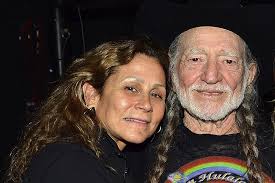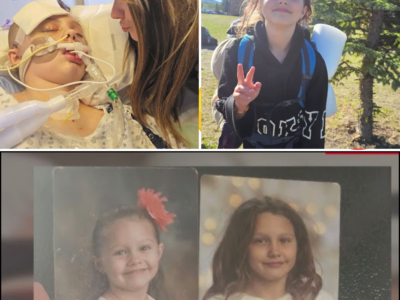:max_bytes(150000):strip_icc():focal(749x0:751x2)/Rachel-Zegler-and-Gal-Gadot-031425-99a28b590fbd4992bc5d53a85db190b7.jpg) Disney’s live-action Snow White remake, starring Rachel Zegler as the iconic princess and Gal Gadot as the Evil Queen, has been a lightning rod for controversy since its inception. The film, released on March 21, 2025, flopped at the box office, earning just $43 million domestically against a $240–270 million budget. Amid its commercial and critical failure, a new claim has surfaced: that Zegler’s co-stars admitted she was the reason for the film’s drastic story changes, which reimagined Snow White as a feminist leader rather than a passive princess. But is there any truth to this rumor, or is it another chapter in the ongoing scapegoating of Zegler?
Disney’s live-action Snow White remake, starring Rachel Zegler as the iconic princess and Gal Gadot as the Evil Queen, has been a lightning rod for controversy since its inception. The film, released on March 21, 2025, flopped at the box office, earning just $43 million domestically against a $240–270 million budget. Amid its commercial and critical failure, a new claim has surfaced: that Zegler’s co-stars admitted she was the reason for the film’s drastic story changes, which reimagined Snow White as a feminist leader rather than a passive princess. But is there any truth to this rumor, or is it another chapter in the ongoing scapegoating of Zegler?
The Remake’s Radical Changes
Disney’s Snow White remake diverged significantly from the 1937 animated classic. In the original, Snow White is a gentle princess who dreams of true love, is poisoned by her jealous stepmother, and is saved by a prince’s kiss. The 2025 version, directed by Marc Webb, redefines Snow White’s narrative: her name derives from surviving a blizzard, not her pale skin; she leads a rebellion to overthrow the Evil Queen rather than seeking romance; and her love interest is a thief, not a prince. The seven dwarfs, renamed “magical creatures” after criticism from actor Peter Dinklage about their depiction, were rendered in widely panned CGI.
These changes aimed to modernize the story, addressing critiques of the original’s dated gender roles. Zegler, in a 2022 D23 Expo interview, described the 1937 film as “weird” and its prince as “stalker-like,” emphasizing that the remake’s Snow White dreams of leadership, not love. While she later clarified that the film retains a love story, her comments sparked backlash from fans who felt she disrespected Disney’s legacy. Posts on X and YouTube videos amplified this sentiment, with some claiming her “woke” views shaped the film’s narrative.
The Co-Star Claim: Fact or Fiction?
The specific allegation—that Zegler’s co-stars, presumably Gal Gadot or others, admitted she was responsible for the story changes—originated from an X post and has been echoed in speculative YouTube content. However, no credible source, including interviews or statements from Gadot or other cast members, supports this claim. The closest related incident involves Jonah Platt, son of producer Marc Platt, who criticized Zegler in a deleted social media post for “dragging her personal politics” into the film’s promotion, blaming her for its poor performance. Ariana DeBose, Zegler’s West Side Story co-star, briefly shared Platt’s quote but later clarified it was unintentional, denying any intent to criticize Zegler.
Reports of tension between Zegler and Gadot, fueled by their differing views on the Israel-Hamas conflict, have also been cited as evidence of discord. Zegler’s August 2024 X post, “and always remember, free Palestine,” posted alongside Snow White promotion, reportedly caused a “severe rift” with Gadot, an Israeli-born former IDF soldier. An anonymous source told People that the two had “nothing in common,” but no evidence suggests Gadot publicly blamed Zegler for creative decisions. These incidents highlight interpersonal strains but do not confirm that co-stars attributed story changes to Zegler.
Zegler’s Role in the Narrative
Zegler, a 23-year-old Latina actress, faced scrutiny from her 2021 casting, with critics arguing her ethnicity didn’t match the “snow-white” description, despite the remake’s redefinition of the character. Her outspokenness—on the original film’s flaws, Palestine, and political figures like Donald Trump—made her a target for online vitriol. Variety reported that Disney executives, concerned about her social media presence, hired a “social media guru” to vet her posts after the Palestine controversy. Critics like Sean Ono Lennon and Megyn Kelly labeled her “spoiled” and “ungrateful,” while fans accused her of narcissism.
Despite this, Zegler’s performance has been a bright spot for some. Screen Rant and Jacobin praised her “sublime” and “sparkling” portrayal, noting her vocal prowess and ability to carry the film amid weak CGI and a muddled script. Supporters, including Melissa Barrera and Ariana Grande, have defended her against what they see as disproportionate backlash, with Barrera calling out Variety’s coverage as a “hit piece.”
Why the Rumor Persists
The claim that Zegler drove story changes likely stems from her public comments about modernizing Snow White, which were misconstrued as evidence of creative control. In reality, script decisions were made by writers Greta Gerwig and Erin Cressida Wilson, with input from director Marc Webb and producers. Zegler, as an actress, had no documented role in shaping the narrative, though her vocal advocacy for the changes made her a convenient scapegoat. The film’s failure—exacerbated by audience fatigue with Disney remakes, poor reviews (40% on Rotten Tomatoes), and review-bombing—has fueled narratives that pin the blame on her.
The Bigger Picture
The Snow White controversy reflects broader tensions in Hollywood: the challenge of updating beloved classics for modern audiences while navigating cultural and political divides. Zegler’s experience mirrors that of other young actresses like Brie Larson and Daisy Ridley, who faced similar backlash for outspokenness or starring in divisive projects. The lack of evidence for the co-star claim suggests it’s a product of online echo chambers, where sensationalized narratives thrive. As Zegler prepares for her next role in Evita, her talent and resilience remain undeniable, even as she navigates a polarized landscape.


